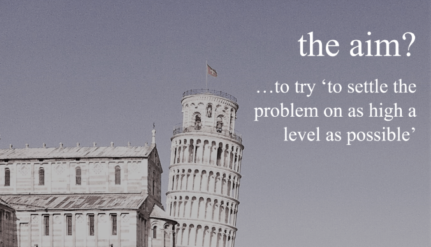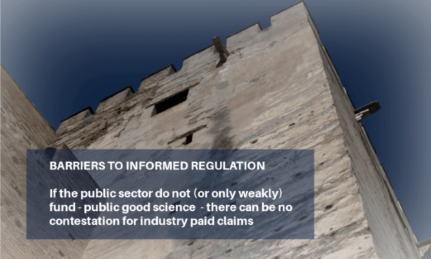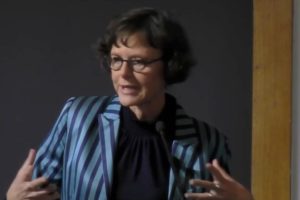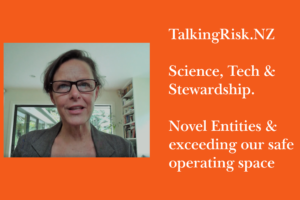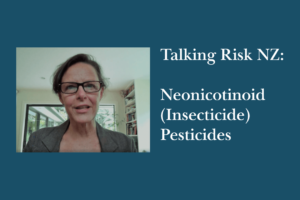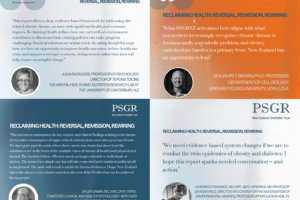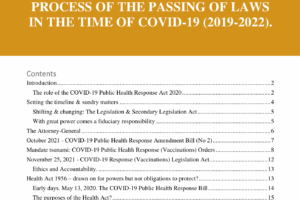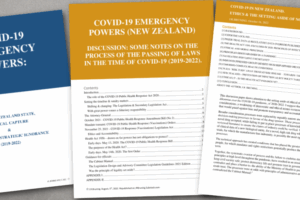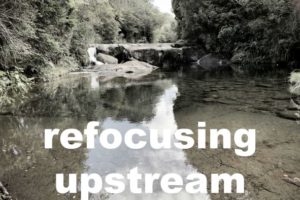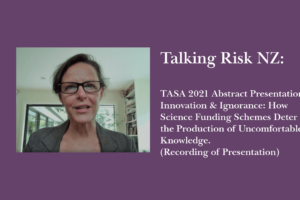On September 16 2023 I was honoured to present at the NZDSOS, (New Zealand Doctors Speaking Out on Science) annual conference. The theme was Truth, Justice and Healing. DEMOCRACY’S UNSPOKEN FOUNDATION: Where is the real fourth estate? The Grand Hall at Eden Park stadium, in Auckland was filled to the […]
Other News
Tech: Outside the safe operating space.
Scientists have proposed that as annual production and releases of manmade technologies accelerate at a pace that outstrips the global capacity for assessment and monitoring – the safe operating space of the planetary boundary of novel entities has been exceeded. This paper, lead by Lyn Persson and colleagues at the […]
COVID-19 Emergency Powers
The New Zealand State, Medical Capture & the Role of Strategic Ignorance. Summary New Zealand’s Unite Against COVID-19 ‘stamp it out’, or ‘elimination’ strategy is revealing it’s democratic and political deficit. The strategy relied on the deployment of policy, legislation and simple slogans focusing on case rates, vaccination, masking and […]
Bee killers – Neonicotinoid pesticides in New Zealand
Biodiversity rhetoric often excludes comment on contamination and pollution from economic activity. Narratives relating to biodiversity loss often exclude the relationship of biodiversity decline and persistent applications of pesticides over years. Also avoided are the low level, or sub-chronic exposures to surrounding ecosystems -the soil and water profiles, and the […]
Reclaiming Health: Reversal, Remission & Rewiring.
JANUARY 24, 2026. I’m proud and delighted that a wide range of eminent scientists and doctors, whose expertise traverses metabolic science, paediatric health & brain nutrition, have generously supported PSGRNZ’s (2026) paper: This primary link provides links to the ‘Reclaiming Health’ paper; the quotes; social media images for sharing (yes […]
On Ethics
Extracts from my October 2022 discussion paper: COVID-19 in New Zealand: Ethics & the Setting Aside of Normative Principles. October, 18, 2022. (refs in original paper) Humanity has a long history of avoiding bringing attention to the ethical mismatch, when lower order rules contradict higher level principles. Actions taken 2020-2022 […]
COVID-19 Papers
During COVID-19 I was researching and writing my master’s thesis while also working pro bono for PSGR. My thesis concerned the problem of scientists in New Zealand and Australia being unable to access public research funding for public good scientific research. The specific research area was health conditions that were […]
A Case for Refocusing Upstream
The River Story, attributed to Irving Zola, by New Zealand sociologist John B. McKinlay “A Case for Refocusing Upstream: The Political Economy of Illness” McKinlay, J.B. (first published 1975) My friend, Irving Zola, relates the story of a physician trying to explain the dilemmas of the modern practice of medicine: […]
What is Uncomfortable Knowledge?
The process of unwrapping the drivers of persistent societal and environmental problems involve extraordinary political challenges. Persistent wicked problems include such diverse issues as pervasive anthropogenic pollution, nutrient loss in food, the privatisation of data, climate change, obesity and non-communicable disease. Wicked problems require that the public, scientists and policy […]
Innovation & Ignorance
In an abstract presented at The Australian Sociological Association Conference, November 26, 2021 the relationship between science policy in New Zealand; the decision-making practices of funding committees and the funding outcomes of scientists were explored. The conference abstract was titled Innovation and Ignorance: How Science Funding Schemes Deter the Production […]
